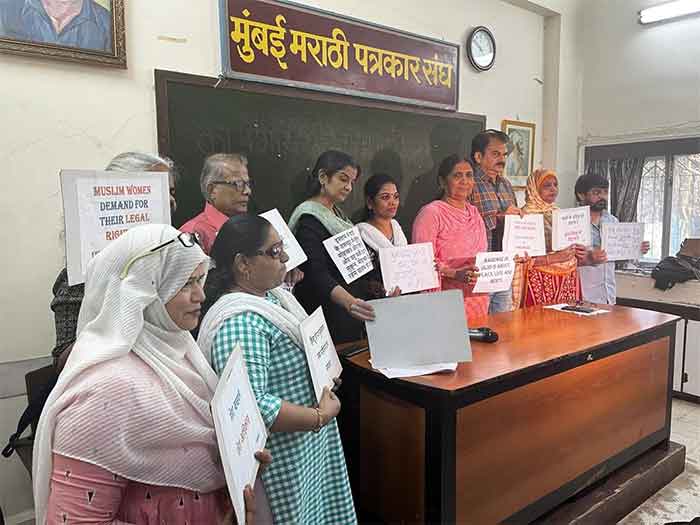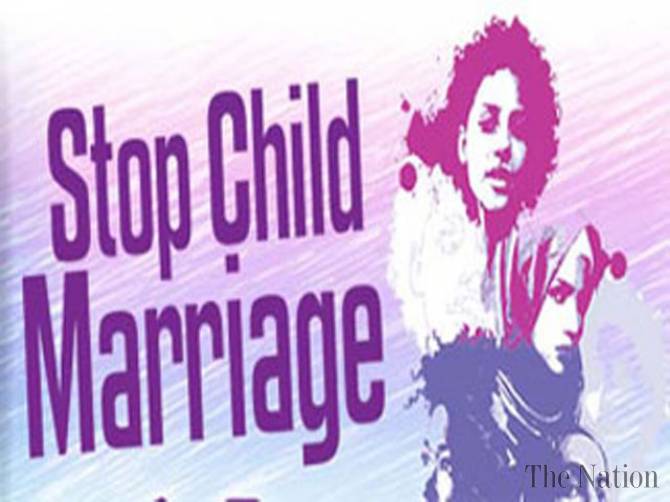
Supreme Court of India has agreed to entertain a sensitive socio-religious issue related to sanctification of marriage of a minor girl on her attaining puberty by Muslim personal law. It has also annulled the Punjab and Haryana High Court that validated marriage of a 15-year old Muslim girl.
The contradictory judgments of various courts on child marriage with regards to Muslim community emerged because the law related to child marriage is ambiguous about its application to the Muslim community. A judgement whether of High Courts or Supreme Court can never be a substitute for law. We demand that all laws related to child marriage, Prohibition of Child Marriage Act, 2006 or the Protection of Children from Sexual Offences [POCSO] Act must be made unambiguously and explicitly be applicable to the Muslim community so that Muslim women and girls are able to take advantage of the law of the land.
Bharatiya Muslim Mahila Andolan [BMMA] has been working on the issue of Muslim family law reform since the last 15 years. We have consistently called for reforms which will ensure a Muslim women’s rights within her family, before, during and after her marriage, within her marital and maternal family.
The Prohibition of Child Marriage Act, 2006 though a national law applicable to all citizens, *is still not made explicitly and unambiguously* applicable to the Muslim community. Supreme Court has not yet given an authoritative verdict on the same although the judgment of 2017 does say that PCMA is a secular law applicable to all. There are some High Courts which have said that personal laws could override the PCMA, 2006 (Punjab and Haryana High Court) and some High Courts like Gujarat and Karnataka which say that PCMA, 2006 will prevail over personal laws.
The Quran is not in favour of child marriage whereas the shariah understanding is that puberty/15 years is the age of marriage. The purpose of marriage in Islam is to create a successful union that promotes love, tranquillity and mercy between husband and wife and contributes to the health of the society. Hence one of the main condition of marriage is free and informed consent of both the spouses. The Quran does not provide a specific age of marriage. Reference of marriage happens in *Quranic* verse 4:6 which requires that the guardian of orphans manage their inheritance until they become fit to marriage and are of sound judgment to manage their own property. There is a direct link between the ability to manage property and marriage, to the age at which maturity to do both is reached. The marriage is a contract in Islam and it is one of the most important contract that an individual will enter during their lifetime. And a contract can only be entered into by two adults at the age specified by the law of the land.
While we welcome raising the age of marriage to 21, we want this amendment to the PCMA, 2006 to also state unequivocally that this law applies to the Muslim community also. Otherwise the Muslim girl does not stand to benefit from this law or its amendment.
In a study done by BMMA called, Seeking Justice Within Family, shows that 75.5% of the 4710 respondents wanted girls to be married above the age of 18. And 88% wanted boys to be married above the age of 21.
Out of the 4710 respondents, we found that 55% were married before the age of 18 and out of which 15% were below the age of 15.
In another study done by BMMA in the state of Maharashtra, 333 out of 505 respondents were married on or before 18. 421 out of 505 respondents said that the girl should be married after the age of 18.
Constitution of India conveys a powerful mandate for equality and rights of women in its Preamble, Fundamental Rights and Duties and also provides for specific provisions for affirmative actions. India is also a signatory to a number of UN Conventions, mainly CEDAW, Beijing Platform for Action and Convention on Rights of Child. India has also endorsed 2030 SDGs by addressing key challenges like poverty, inequality and VAW.
The draft National Policy for Women, 2016 must address this exemption in law and must make the PCMA, 2016 applicable to the Muslim community as well. Sadly the National Policy for Children, 2013 does not even mention child marriage. This policy statement must be amended to mention child marriage and its impact on the child’s overall development. It must also mention that the laws related to children, specifically PCMA, 2006 must be made applicable to the Muslim community as well.
Our demands in short:
The PCMA, 2006 must UNAMBIGUOUSLY AND UNEQUIVOCALLY mention that this law is applicable to the Muslim community as well. The Muslim community is not exempt.
Organised by:
Khatoon Shaikh – [Bharatiya Muslim MahilaAndolan]
Noorjehan Safia Niaz : [Bharatiya Muslim Mahila Andolan]
Feroze Mithiborwala: [Bharat Bachao Andolan]












































